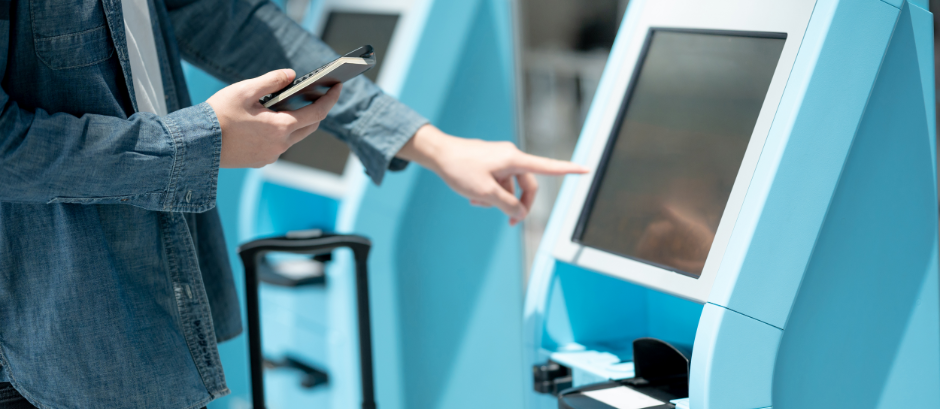Table of Contents
- Personalization
- Streamlined Processes
- Enhanced Room Features
- Predictive Maintenance
- Sustainability
- Security
- Considerations for Implementation
In modern hospitality, an exceptional guest experience isn’t just a good vision to aim for – it’s an expectation. For hotels, the emergence of AI presents a huge opportunity not only to create a more personalized guest experience but also to streamline and improve operations. By automating tasks and processes, AI can free up staff to focus on more complex and guest-centric activities, ultimately leading to more efficient and memorable stays. Today, we consider several specific options for enhancing the guest experience with AI in hospitality, with specific examples and considerations for implementation.
Personalization
Personalization is increasingly a key contributor to guest satisfaction. A “one-size-fits-all” approach is no longer good enough for most properties. A 2021 report by McKinsey indicates that over 70% of consumers expect personalized interactions. Over three-quarters of consumers say they’re more likely to purchase from a business that uses personalization. This is where AI in hospitality can truly shine, enabling hotels to deliver personalized experiences that exceed guest expectations.
Nick Jones, EVP & CTO of WorldVue, notes that:
“The whole point is to get as much information at the fingertips of as many of our employees that interact with customers. This way, the experience can be as personalized and intelligent as possible. Think about it – when you call tech support, your expectations are typically very low. If the agent on the other side of the phone knows my name, I perk up a little. If that agent recounts the issue I had before, that’s even more surprising. Then if that agent keeps me from having to repeat myself to everyone that I’m transferred to, I’m blown away.
“This is the scenario we’re trying to create. At a 5-star property, if the property staff has a spot to jot down important notes like your kids’ names, their ages, birthdays, small things revealed in casual conversation – as long as it’s used in a way that respects a guest’s privacy and preferred level of interaction, that presents an opportunity for an above-and-beyond experience.”
AI offers a powerful tool to enhance the capabilities of hotel staff, enabling them to deliver highly personalized experiences. Using data collected from previous stays, booking information, and guest feedback, AI can create detailed guest profiles. AI-based concierge services can then recommend room types, dining options, or local activities based on guest profiles or data for a specific guest. Renaissance Hotels by Marriott, Hyatt Hotels, and Wyndham Hotels are several hotel brands that have successfully implemented AI-based concierge or personalization services.
Hotels can also use AI to find opportunities for upselling, offering upgrades to guests during booking or check-in. AI can use guest data along with the existing science on how to optimize these offerings to increase revenue while delighting guests.
Another benefit of AI-based concierge services is that they can free up staff to address issues that require a human response. By using AI chatbots and similar tools to respond to simple requests, routine calls to the front desk can be reduced by 35% or more. This allows staff to focus on value-added tasks where a human touch can improve the guest experience.
Streamlined Processes
In recent years, many guests have shown a preference for self-service kiosks and mobile check-in/check-out. These options can significantly enhance guest satisfaction by reducing wait times and simplifying processes. When combined with AI, these systems can use facial recognition and other biometrics to make these interactions quicker and more secure.
Jones describes one scenario for using AI in hospitality to improve the guest experience at check-in:
“By the time you check in, all the hard work is done, and all that’s left is to verify who you are and get you a key. For this, we can offer mobile app check-in. But what do we do if your app is not working correctly, your phone battery dies, you don’t know your app password, or you just don’t want to mess with a mobile key? That’s where kiosks come in. They can be simple, just a computer station, or we can get fancy with a robot or a hologram of a front desk person that helps you.
“How do we identify you in this case? Clear is piloting a solution to identify you by facial recognition at the airport. This way, as long as you see a green light, you just keep walking through security. If what they ‘see’ doesn’t match, then they must identify you manually. We could use the same approach in a hotel. If we can identify you as you, then we can print your key card (or provide a mobile card), and it’s off you go, all while still on your conference call without having to talk to or acknowledge anyone.”

Enhanced Room Features
AI can also improve the guest room experience. Smart rooms equipped with AI-powered Internet of Things (IoT) devices can adjust lighting, temperature, and entertainment options based on guest preferences. Voice-activated assistants can provide information, control smart devices, and even order room service.
Jones proposes that there are great possibilities for using AI to enhance the in-room experience:
“If we can deploy IoT functionality, we can take personalization many steps further. Across all our properties, upon check-in, we can adjust the blinds, lighting, thermostat, and even water temperature (both in the shower and the bathroom sink) to the way you had it the last time you stayed at any property we serve. We can build and implement these concepts based on moods or modes.
“For example, when you’re sleeping, you like the lights, room temperature, and curtains set a certain way. You have similar patterns when you wake up, what you prefer when you arrive at the hotel, etc. We start by building default settings for each mood/mode. We can develop these in conjunction with the property and by aggregating all guests’ preferences. Then we learn based on an aggregation of actions over time. We test our assumptions the first time a guest arrives in a WorldVue-enabled room. We learn your preferences and present them back to you at subsequent stays.”
He adds:
“Once we learn what services you’re subscribed to, we can suggest content from any/all the services you subscribe to. We can also show you the best place to watch what you want to watch now. We are working with streaming service providers to build a safe and secure method of storing your login credentials that will persist across all properties we serve today.
“Our goal is to give guests a better experience than what they have at home. During our guests’ stay, we anonymously learn what guests like to watch and what services they subscribe to. We aggregate this content centrally to provide a highly personalized ‘What to Watch’ screen comprising only content that we know you want to watch. We also provide a search function that intelligently knows what you already have access to. If you don’t have access to specific content, we can tell you the most efficient place to get that content.”
Predictive Maintenance
Equipment maintenance can be one of the higher-cost items for hotels. Unexpected breakdowns can lead to higher costs, equipment downtime, and dissatisfied guests. AI in hospitality can help predict equipment failures, ensuring that amenities are functioning well for guests and saving time and money.
Predictive maintenance uses AI algorithms to analyze data from sensors in various systems (e.g., HVAC, plumbing, elevators) to identify potential issues. By spotting issues before they arise and scheduling maintenance for off-peak times, predictive maintenance can help reduce costs and downtime. Some studies even show that it can help extend equipment life by 25-50%.
Sustainability
Similarly, AI can play a role in promoting sustainability in hotels. By optimizing energy use and reducing waste, AI can significantly reduce a hotel’s carbon footprint. For example, AI-driven energy management systems can analyze consumption patterns and adjust heating, cooling, and lighting to maximize efficiency. With this kind of system, Hilton has achieved over $1B US in energy savings.
AI-based solutions can also help reduce waste by more accurately predicting inventory needs, thus reducing overstock and spoilage. These initiatives not only save money and improve the guest experience but also have the potential to attract more eco-conscious travelers.
Security
AI in hospitality can also improve guest and staff safety. For instance, AI-powered surveillance systems can analyze footage in real time to detect unusual activity, unauthorized access, or suspicious behavior. These solutions can alert staff immediately, enabling prompt responses to potential threats.
AI can even enhance emergency response by providing real-time insights to first responders. AI-based solutions can analyze data from cameras, sensors, and other devices to identify the location and severity of an emergency. They can also provide critical information to help guide first responders to the area and lead guests to safety.
Considerations for Implementation
While the potential benefits of AI are clear, implementation requires careful planning. Some factors to consider include:
- Data security and privacy – Ensuring guest data is secure and used properly is paramount. Hotels must also comply with regulations such as GDPR and implement robust cybersecurity measures.
- Integration with existing systems – For the biggest impact, AI solutions should integrate seamlessly with the hotel’s current systems, including the PMS and CRM platforms.
- Staff training – Hotels must train employees to use newer AI-based technologies. This includes not only technical training but also understanding how AI can enhance their roles and improve the guest experience.
- Guest acceptance – How guests will receive these solutions should be of the utmost concern.
- Some guests may be uneasy with AI-powered solutions. There should always be an option for guests to choose a non-AI approach.
- Make sure that solutions work well; a poorly designed chatbot will just annoy your guests. Surveys and pilot programs can help you understand guest preferences and tailor solutions accordingly.
Remember, too, when implementing these solutions that AI in hospitality should not be a replacement for your staff but a tool to help them better please guests. After all, the goal is not simply to implement AI but to make guests happier!
From personalized services to more efficient operations, AI can transform how hotels interact with their guests and what kind of experience they provide, setting new standards for excellence. As the industry evolves, staying ahead with innovative AI-based solutions will be crucial for achieving sustained success and guest loyalty.
WorldVue is your trusted advisor for new developments and property improvement plans and your single source for a wide range of technology products, including AI in hospitality. We are your ONE point of contact for installation, service, and support nationwide. Call us to find out how our solutions for connectivity, infotainment, and more can create a great experience that keeps your customers coming back!

